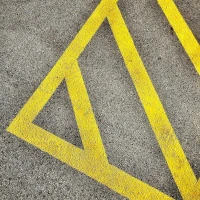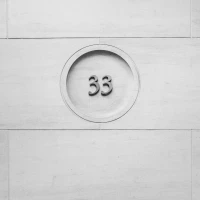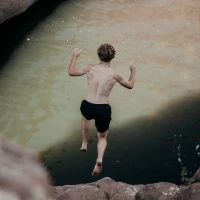Freediving is not just a sport, but also a powerful tool for self-discovery and personal growth. By diving into the depths of the ocean, we can explore our inner depths and reconnect with ourselves in a profound way. In this article, we will explore the fascinating world of freediving and how it can be a transformative experience for both the body and mind.
The Art of Freediving: Exploring the Depths
Understanding Freediving
Freediving, also known as breath-hold diving, is a form of underwater diving where individuals rely on their breath-holding capabilities to explore the depths. Unlike scuba diving, which involves the use of breathing apparatus, freediving requires divers to hold their breath while descending into the depths and resurfacing. It is a challenging but rewarding activity that allows individuals to connect with the marine environment in a unique and intimate way.
Benefits of Freediving for the Mind and Body
master freediving offers a wide range of benefits for both the mind and body. From a physical perspective, it improves lung capacity, strengthens the diaphragm, and increases overall fitness levels. The breath-holding techniques employed during freediving also promote relaxation, reduce stress levels, and enhance mental focus and concentration. Additionally, the meditative nature of the sport allows divers to achieve a state of mindfulness and be fully present in the moment.
The Connection Between Freediving and Self-Discovery
Freediving is more than just a physical activity; it is a journey of self-discovery. By pushing the boundaries of their comfort zones and exploring the depths, divers are confronted with their fears, limitations, and inner strengths. This process of self-exploration and self-awareness can lead to profound personal growth and transformation. Freediving challenges individuals to face their fears, cultivate resilience, and develop a deep sense of trust in themselves and the surrounding environment.
Holistic Healing Methods in Freediving
Breathwork and Pranayama Techniques
Breathwork, a fundamental aspect of freediving certification, plays a significant role in the holistic healing process. By mastering various breath-holding and breathing techniques, divers can optimize their oxygen levels and enhance their diving performance. Pranayama, a yogic practice involving controlled breathing exercises, is often incorporated into freediving training to promote relaxation, improve lung capacity, and regulate the nervous system. These techniques not only benefit divers during their underwater journeys but also have far-reaching effects in their daily lives, helping to manage stress and cultivate a sense of inner peace.
Meditation and Mindfulness in Freediving
Freediving is a natural conduit for practicing meditation and mindfulness. The serene and ethereal underwater world provides the perfect setting for individuals to be fully present and focus their attention on the here and now. During a dive, divers are encouraged to let go of distracting thoughts and external stimuli and embrace a state of mindfulness. This practice cultivates a deep connection with oneself, enhances self-awareness, and promotes mental clarity. The ability to be fully attuned to the present moment can be carried over into everyday life, leading to improved focus, reduced anxiety, and increased overall well-being.
Visualization Techniques
Visualization is a powerful tool used by freedivers to enhance their performance and overcome mental barriers. By visualizing a successful dive and rehearsing each step in their minds, divers can effectively train their brains and enhance their confidence judge jeanine makeup tips. Visualization techniques not only help divers to achieve their goals but also serve as a powerful means of self-discovery. Through visualization, divers can tap into their subconscious mind, uncover limiting beliefs, and challenge self-imposed barriers. This process allows for personal growth and transformation, both in and out of the water.
Mindful Exercises for Freediving
Yoga and Stretching for Increased Flexibility
Flexibility is essential in freediving courses, as it enables divers to move through the water with ease and maintain proper body alignment. Yoga and stretching exercises play a vital role in developing and maintaining flexibility. Practices such as hatha yoga, yin yoga, and dynamic stretching can help elongate the muscles, increase joint range of motion, and improve overall body flexibility. Incorporating these exercises into a regular routine can not only enhance freediving performance but also contribute to overall physical well-being.
Physical Conditioning and Strength Training
Physical conditioning and strength training are crucial components of freediving. A strong and fit body not only allows for improved diving performance but also enhances overall safety and reduces the risk of injury. Strength training exercises, such as weightlifting, resistance training, and bodyweight exercises, help divers build muscle strength, improve endurance, and enhance overall body control. By maintaining a regular strength training routine, divers can optimize their physical abilities and explore the depths with confidence.
Mental Preparation and Visualization
In addition to physical training, mental preparation is essential for successful freediving. Mindful exercises such as meditation, visualization, and positive affirmations can help divers cultivate a focused and resilient mind. By visualizing successful dives and affirming positive outcomes, divers can reduce anxiety, boost confidence, and overcome mental barriers. These techniques allow divers to tap into their inner resources and develop a strong mental foundation, which is crucial for self-discovery and optimal performance.
Holistic Healing and Freediving: A Powerful Combination
Freediving, with its unique blend of physical and mental challenges, provides an ideal platform for holistic healing and self-discovery. By incorporating various holistic practices, such as breathwork, meditation, visualization, and mindful exercises, divers can embark on a transformative journey of self-exploration and personal growth. The holistic nature of freediving extends beyond the water, with its benefits permeating into everyday life. By embracing the depths of the ocean, divers can also dive into the depths of their own being, uncovering hidden potentials, and experiencing the profound connection between mind, body, and spirit.
Conclusion
Freediving offers a gateway to self-discovery and holistic healing. Through breathwork, meditation, visualization, and mindfulness exercises, divers can explore their inner depths and cultivate a deep sense of self-awareness. The physical and mental challenges of freediving serve as catalysts for personal growth and transformation, leading to improved well-being both in and out of the water. By diving into the depths of self-discovery, individuals can unlock their true potential and find harmony within themselves and the world around them.










